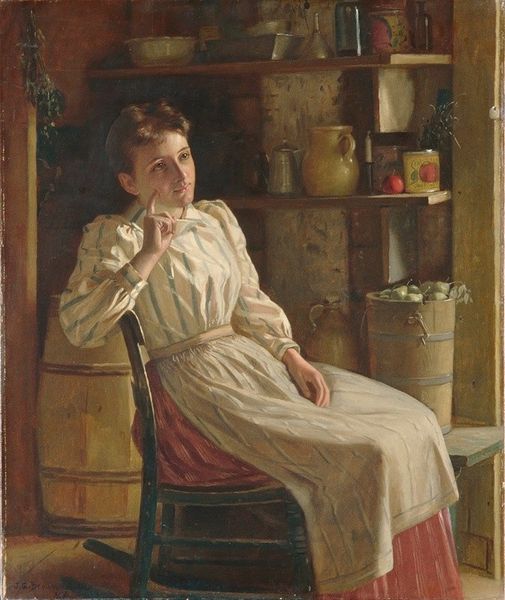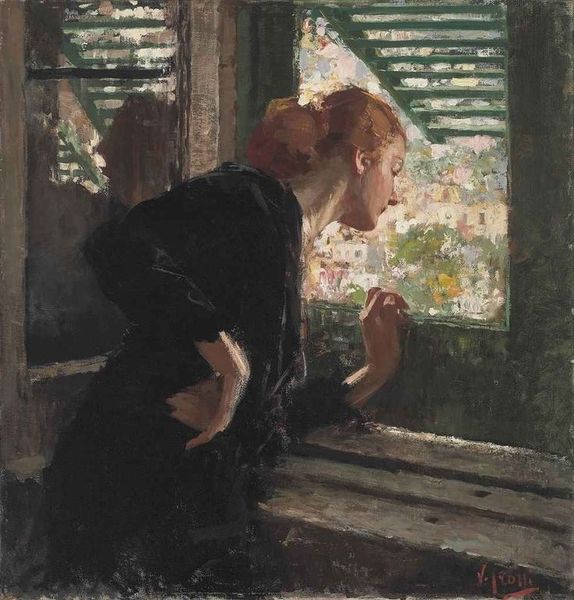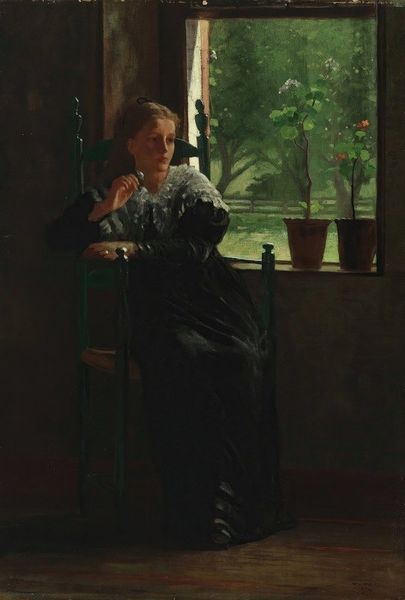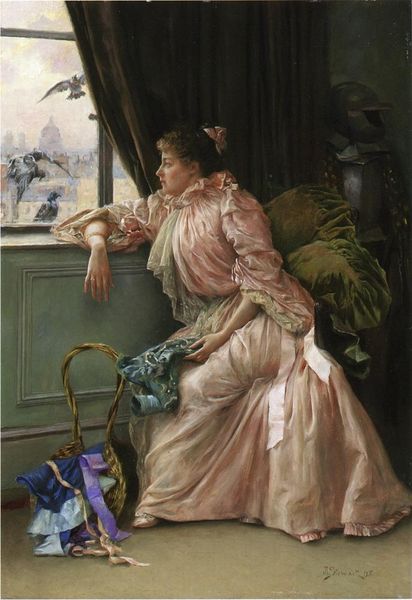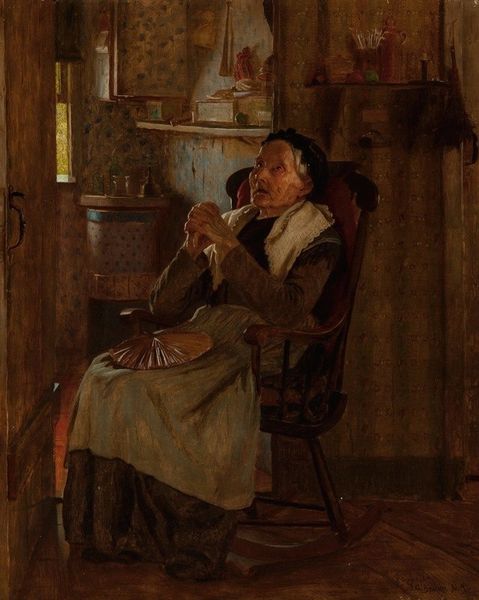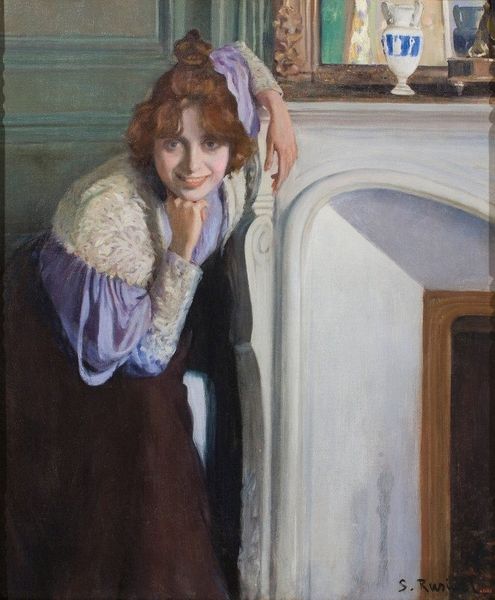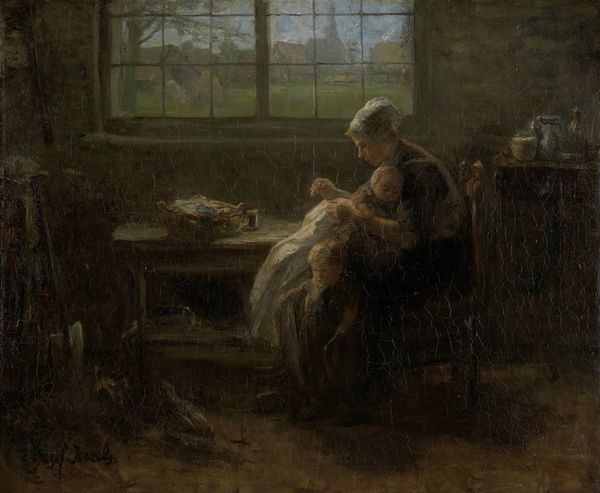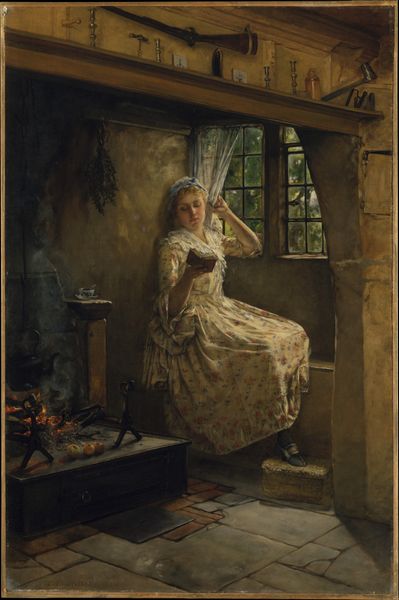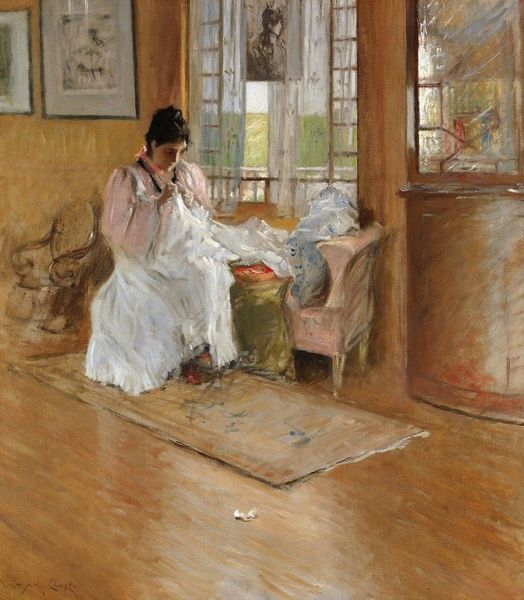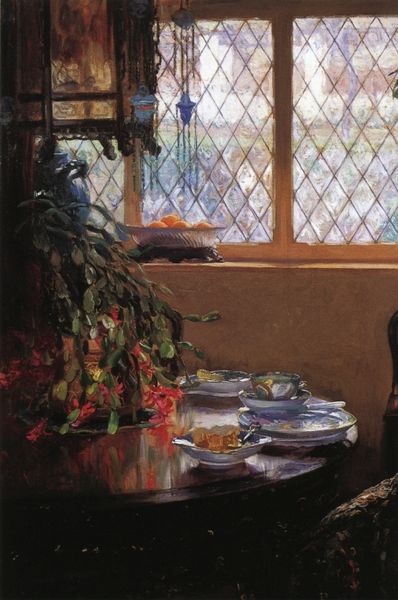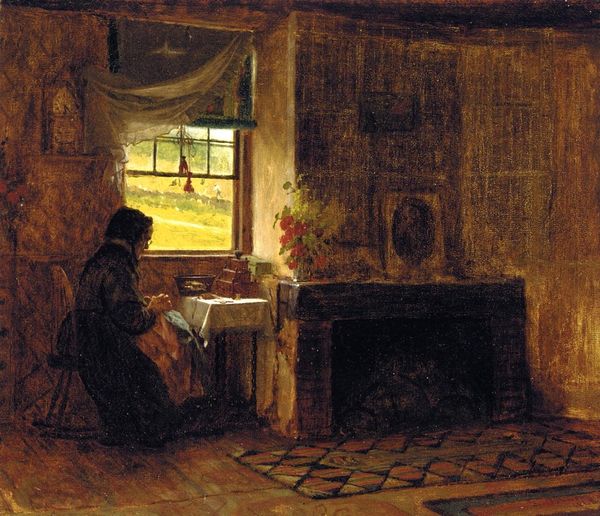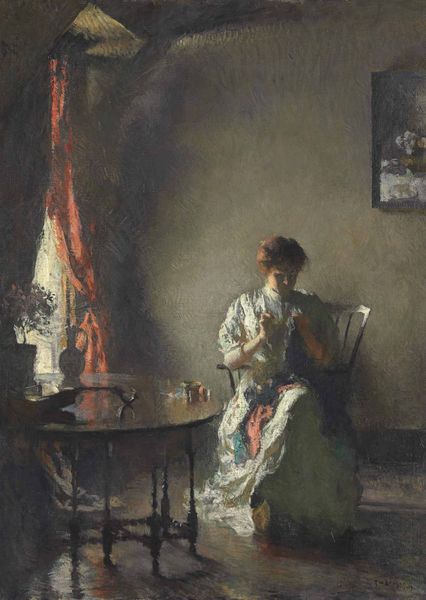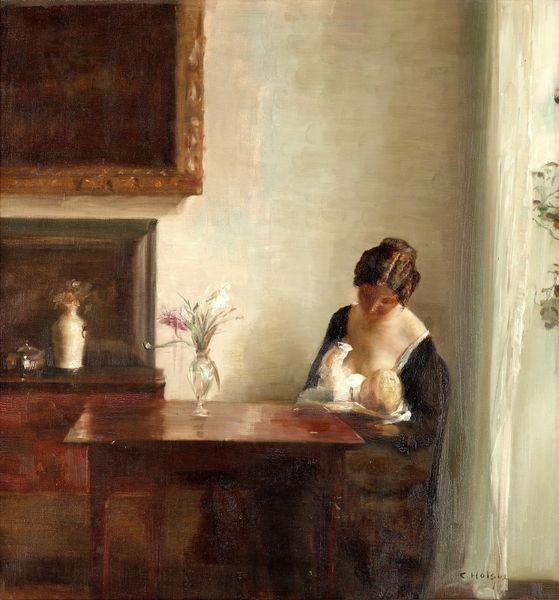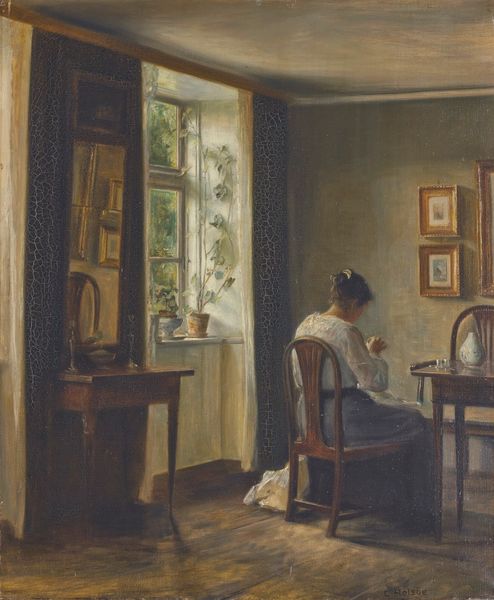
Copyright: Public Domain: Artvee
Curator: Carl Bloch's painting from 1884, entitled "After the Bath. A Young Girl Knocking at the Fisherman’s Window" presents a quiet domestic scene. Bloch was a master of realism, as we can tell from the incredible detail within the piece. Editor: First impression? Melancholy with a capital M. The poor kid looks like she's stuck in a fishy-smelling box, desperately seeking a sliver of sunlight and someone, anyone, to play with! That gray light doesn't help, either. It reminds me of growing up near the ocean... and always wanting to escape it. Curator: I'd argue that's where the tension lies, though. The piece is not necessarily meant to look uplifting or colorful. The tension is created precisely because you have this beautiful image of the child adjacent to what we understand about fishing, in the late 1800s. We have the nets hanging on the window, and we know those nets are how people survived then. There is an inherent relationship between these objects: labor and domesticity, coexisting. Editor: Point taken. Still, the execution...it’s almost too polished, don’t you think? Like a Victorian-era postcard of rustic poverty. Is that cynicism clouding my vision, or does it lack true grit? The composition feels contrived. Curator: While the composition may have taken time, keep in mind that the conventions of Realism and Romanticism often merged, which is evident here. It served not just as observation but as commentary on the socio-economic circumstances. By showing a fleeting moment in the life of working class, we were made aware. Editor: And yet, the light catches just so, a carefully placed flower bouquet brightens the scene—all quite artful. Maybe Bloch was making us reflect on what we deemed worthy of beauty at the time. The contrast between idealized image and harsh reality gets the wheels turning, for sure. Curator: Indeed, I think what this painting ultimately achieves, beyond the representation of that period, is encouraging an assessment of how labor, family, and aspirations are permanently interwoven in coastal communities and beyond. Editor: Agreed, in retrospect that melancholy transforms itself. Instead of sadness, I feel quiet defiance. This is not some damsel in distress, she’s patiently seeking interaction while trapped by circumstance. And the fisherman will eventually appear. I choose to believe so, anyway.
Comments
No comments
Be the first to comment and join the conversation on the ultimate creative platform.
